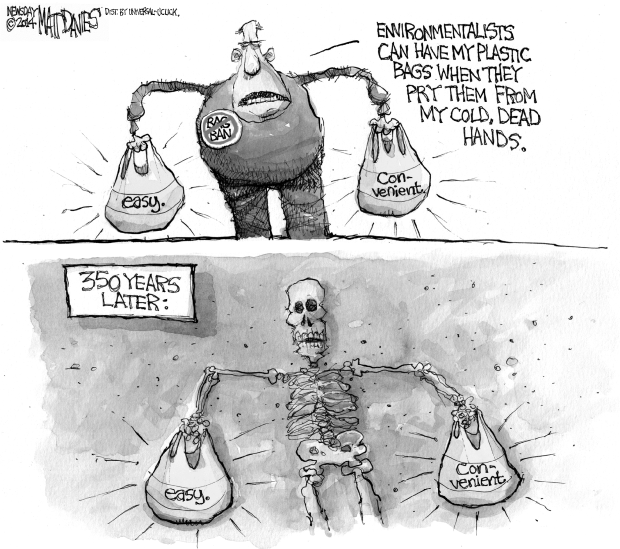
The detrimental impacts of thin-film plastic bags on our planet earth have been discussed and examined in much research and dialog. It is a topic that has been brought up over and over again in an arrays of discussion – from political campaigns, environmental concerns, public health, to economic efficiency, plastic bags affect a multitude of stakeholders of the earth.
The former CEO of one of Britain’s largest supermarkets, Asda, is calling for all supermarkets to stop using plastic bags ENTIRELY. Andy Clarke bluntly pointed out that the effort to recycle plastic bags is a mere “never-ending stream of initiatives”, because sooner or later the plastic bags will eventually reach landfill or the bottom of the ocean.
“The amount of plastic produced in a year is roughly the same as the entire weight of humanity” – this shocking statistics reveals the unnecessarily copious amount of plastic bags that are piling up on our land, as well as a prediction of a soon-to-come natural catastrophe.
I think Clarke brought up a very important point of eliminating plastic bags at their roots. The reduction and elimination in plastic should not be merely focused on the take-away bags, but also on the products coming into the store. He called for Asda and other supermarkets to use the host of new products coming on the market to cut plastic pollution.
I believe that the responsibility to tackle this issue should be the all participants in the consumption chain. We as the buyers, can contribute through conscious purchasing, and the producers can use this opportunity to innovate in packaging, which consequently saves environmentally minded consumers the hassle of hunting for environmentally friendly choices across the store.
The crisis of plastic bags are just a tip of the iceberg, but it provides us with the preliminary notion of “collective effort” from all stakeholders.
TessDavies
October 18, 2017 — 2:53 pm
Thanks Angela,
I totally agree, plastic bags shouldn’t even be an option! In fact many European countries haven’t allowed them for years. For me this is just one example of the continuous battle between regulation by governments and merely hoping consumers do the right thing, always a fine line.
All your posts have been very insightful. I would love to see some examples of possible solutions you see to the issues you are addressing. Adding another level of depth to your posts.
Keep up the good work,
Tess
EceIkiz
October 29, 2017 — 4:21 pm
Hey Angela,
I really enjoyed reading your post, and I totally agree that plastic bags should be banned entirely. In Safeway and London Drugs, they have initiatives in place for people to recycle their bags. I find that every time I take my plastic packaging, bags etc. to these bins, it seems to be empty. So if majority of plastic bags don’t come back to the store, there is definitely a need for a change. I also think that switching to biodegradable plastic bags isn’t the solution either. Because if they are not disposed of correctly, then its still a plastic bag thats entangling marine life as it won’t just decompose on its own.
Nicole
November 16, 2017 — 5:17 pm
Hi Angela!
First off, I wanted to say that I really liked your picture choice. Though the main focus of the comic is about the bag-man’s statement and how 350 years later, no one even desired plastic bags, something else stood out for me: even after 350 years, the plastic bags didn’t decompose and are still in the condition they were in before. 🙁
A quick Google search showed me that plastic items can take up to 1000 years to decompose in landfills. In your post, you mentioned that “The amount of plastic produced in a year is roughly the same as the entire weight of humanity.” That’s crazy! I think Clarke’s approach of focusing on not only plastic bags, but also on the packaging of products and supplies is geared towards a right direction. Do you think it will be feasible to ask supermarkets to stop using plastic bags entirely?
steven sy
December 4, 2017 — 6:24 pm
Hey Angela, thanks for this great read! I agree that we have to start thinking about moving away from plastics and one thing that I’ve recently heard about that could help businesses accomplish this is to start making bioplastics out of a renewable source like Chiton. Similar to Good Natured Products line of bioplastics, these packages could be biodegradable and leave less of an impact on the environment. Researchers are looking at taking discarded mollusc shells from places like dining restaurants and converting the chiton found in them into plastics. Since so many bottles and plastic packages end up in the ocean, they think that the chiton bottles that do end up in the ocean will actually help to release vital nutrients back into the ecosystem.